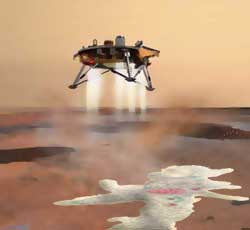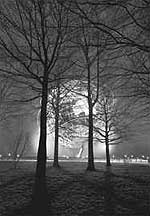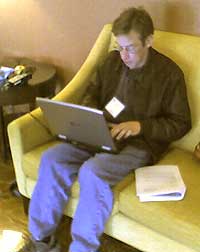Rain of soup: the NPR API
For a longtime advocate of emphasizing the "public" in public broadcasting, this is an exciting moment. My online colleagues at National Public Radio have made it the first major media company to hand what amounts to the "keys to the kingdom" over to the public. They have done this via the introduction of an open API, or application programming interface--a mouthful of buzzwords describing a feature that allows the public to access the entire archive of 250,000 NPR stories, and to use them as they see fit within their own sites, pages, and blogs. Included are tools to organize collections of stories by topic, program, series, reporter, and/or search term, and to receive those stories in a wide variety of formats and at varying levels of detail.
Within a few months, NPR stations such as North Country Public Radio will also be able to make their own stories available to the public using NPR's API. So, for example, if you had a blog dealing with environmental issues in the Northeast, you would be able to create a collection of stories on the environment from NPR mixed with local stories from NPR stations in the Northeast. Or a bluegrass fan might collect all the performances by and interviews with bluegrass artists at NPR and mix in performers from the UpNorth Music project. Or you could just grab every story since 1995 about James Brown, the hardest working man in show business. Sweet.
Even better, outside developers are already building new tools to use the API in novel ways. John Tynan at KJZZ has worked out a widget that takes NPR stories by topic and drops them onto a timeline, so you can see how coverage of a given issue develops. Here is a sample of the work in progress. Geoff Gaudreault of Reverbiage has built a widget that combines a 3D globe mapping out the latest NPR stories with an embedded player to listen to the stories. See it work and get the code. At NCPR, we are in the process of switching to the API for all the NPR features syndicated within the site. You can play with the API yourself, and should. Use the "Query Generator" to select and view different slices of the NPR pie. Register to use the NPR API.
Labels: mapping, media, open source, pubforge, public radio, social networking, technology, web design





